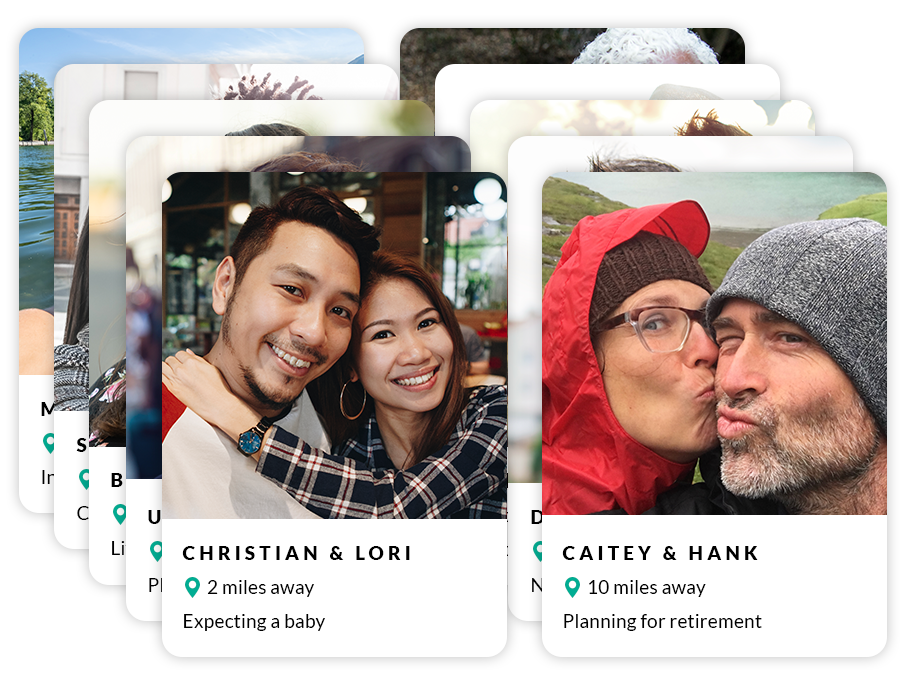“Be careful what you wish for, lest it come true!” -Aesop’s Fables
You wanted more clients, you turned to Planswell, and now you’re busy af. Sorry, not sorry.
We do care, but for completely selfish reasons. When Planswell partners take on too many new clients too fast, they sometimes get overwhelmed and bail on us. We can’t have that. We need you at the top of your game.
I’ve tapped a few colleagues from our high-efficiency, super-performance team here at Planswell to help you get your sh!t together. This group juggles fire day in and day out, and so far, no one has gotten burned. Before deciding you have all of the new clients you can handle, please try these productivity hacks.
Try Bullet Journaling
![]()
Meagan Terrel, Product Designer
A couple of years ago, my brother-in-law shared his journal with me. I remember feeling really uncomfortable, like … are you sure you want me to read your private thoughts and feelings? But it actually wasn’t like that. It was a bullet journal. (note: a bullet journal can technically also house your thoughts and feelings, but it’s a whole lot more.)
So what is a bullet journal? Officially, it’s a mindfulness practice that was constructed by product designer Ryder Carrol. He originally created the "BuJo (bullet journal) Method" as a way to cope with his learning disabilities and track his thoughts and productivity. It kind of morphed into a tool that helps with mindfulness and living intentionally. Philosophy aside, bullet journaling is a way to record and organize your tasks, notes, and things that are going on in your life.
I'll share with you the simple bujo approach that has helped me be more mindful and productive—in bullet points of course!
- Get a notebook and a pen/pencil (it doesn’t have to be a bullet notebook, although Ryder might be a little bummed)
- On a fresh page, write the month and day
- Jot down your bullets and use this syntax to organize:
- Dot: Tasks— stuff you have to do eg.
- Dash: Notes—stuff you want to remember
- Hollow dot: Events —noteworthy moments
- Add signifiers to your bullets for more context
- ! - inspiration
- * - priority (don’t be super generous with this one)
- Repeat!
Something that has also helped me is tracking my time, so I know where all of it goes(!) and how those little things that I’m doing align to the bigger picture of the goals that I need to achieve. It makes me feel a little more in control and feel like I’m being more intentional in what I’m spending my time on. If you’re looking for a little more control, autonomy, and peace of mind, try it out!
Duck It!
![]() Shaun Esau, Software Developer
Shaun Esau, Software Developer
In software circles, the "rubber duck" is deservedly famous. It's an eerily powerful tool for tackling those unusually sticky problems that you come across occasionally when you're developing an advanced product like Planswell's. Truth be told, you don’t have to be a software developer to make use of this technique. Whatever problem you’re trying to solve, talk it out with a rubber duck.
At some point in your career, you’ve probably had success talking through a tough puzzle with a colleague. Having another expert contributing can quickly pin down your blind spots and get you moving again. If you’re a solopreneur in your own firm, you’re probably missing out on this invaluable support (shameless plug for Planswell partners: bounce challenges off peers in our free-to-you Plancraft program).
The thing is, more often than not, somewhere right in the middle of explaining the finer details of a challenge to a colleague, you suddenly realize on your own what you'd been missing all along! That’s why it often works just as well to bore a nearby spouse or child with the minutiae of whatever you’re facing. If you value your family's happiness, perhaps just chat with a rubber duck.
For your next impossible problem, don't hesitate to give a quick explainer to whatever knick-knack happens to be nearby. Now if you'll excuse me, I've got to go fix a bug while I remember the solution I squeezed out of the dinosaur my daughter left on my desk.
Fail Forward
![]() Ermos Erotocritou, Business & Performance Coach
Ermos Erotocritou, Business & Performance Coach
There's a lot of talk about whether a positive or negative mindset really impacts people. There are studies that prove those with positive mindsets get sick less often, are generally happier, and live up to seven years longer (not a typo) than those with negative mindsets.
Resilience is the trait that allows some people to be knocked down and come back at least as strong, if not stronger than before their failure. Rather than letting failures overcome them and drain their resolve, highly resilient people find a way to change course, emotionally heal, and continue moving forward.
Psychologists have identified that a positive mindset helps people identify failure as a form of helpful feedback rather than a catastrophic event from which one cannot recover.
Optimism reduces stress on the mind and body in the wake of failure. Getting through failures without letting them become overwhelming isn’t necessarily easy for anyone but very possible.
Which are you? Do you attribute major setbacks to your own inadequacy? Are you a perfectionist that's constantly disappointed when something turns out just a little bit off? OR, are you able to identify contributing factors to your failures and are comfortable with the hits and misses that life throws at you? The latter has been tied to greater levels of resilience.
To fail is human. Everyone fails at something or many things, no matter their background, skillset, or life story. It's not a matter of whether or not you will fail because that is guaranteed. The question is how will you handle that failure.
Did you know Michael Jordan, indisputably one of the best basketball players of all time, was cut from his high school basketball team? "To learn to succeed," he said, "you must first learn to fail. I've missed over 9,000 shots in my career. I've lost almost 300 games." Success and failure are not mutually exclusive; you can have both.
In fact, learning to be comfortable with making mistakes, big or small, is a critical skill tied to success. When we try new things there are only two outcomes: we win or we learn. Either way we grow. When you make a mistake, there are three things you should do:
- Admit it
- Learn from it
- Don’t repeat it
If you want to grow, you need to get over any fear you have of making mistakes.
Game the System
![]() Abdullah Hussain, Product Manager
Abdullah Hussain, Product Manager
The path we’re on is often winding and can sometimes be a little more perilous than we first thought. Is quitting an option for you?
I’ve spent a lot of time figuring out how not to quit. You see, I’m a video gamer and we’re notoriously quitters. Only 8% of all video games are actually completed. Although there are virtually no consequences for quitting a video game, I’ve developed some strategies to improve my game. I’ve found they work in real life too:
- Write it down: Putting the goal on paper sets you apart from the pack. You’re basically supercharging that Mario Kart before the numbers count down...3-2-1-GO!
- Look at the map: Getting the big-picture view of where you’re going allows you to consider different routes.
- Set milestones: Small wins help you stay engaged. Picking up bounties on your way helps you build your purse, which helps you buy that gun/sword quicker, which helps you increase your stats to make the rest of the way that much easier.
- Interval training: Have you ever heard of the 52-and-17 rule? I’m talking about the one where you play for 52 minutes for peak performance, then take a 17-minute break to go to the bathroom or massage the cramps out of your hands. That works in real life too. Recharge. Take vacations. Get enough sleep.
- Support systems: A team of unique characters really helps the process, especially when you're facing a puzzling situation. “Remind me, was it right, left, X, left?” Your support system can offer encouragement and advice.
- Focus: You wouldn’t put down the controller and reach for a drink or a snack once the multiplayer game has started, would you? Focusing on one task at a time will ensure you hit save at each checkpoint.
If all else fails, we have a solution for you. Planswell partners can pause their growth efforts at any time while maintaining access to their software, unique referral code, Advisor HQ, Plancraft and more. Downgrade your partnership—no questions asked—and take as long as you need to get caught up and sort things out. We can turn the funnel back on for you whenever you’re ready to serve more households.
-----
Never miss an article from Planswell — subscribe here.






.png)


